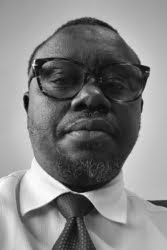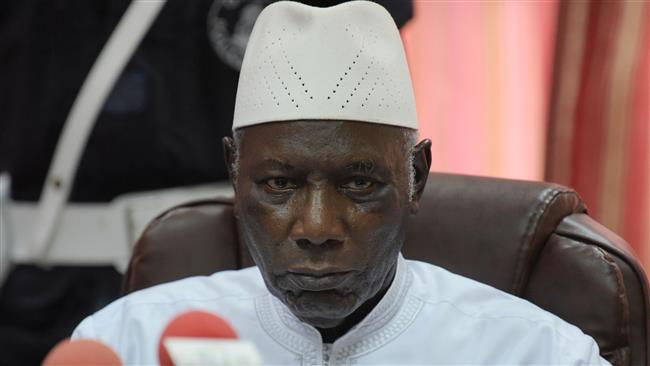“The only thing that we learn from experience is that we learn nothing from experience”. Too often we erroneously and deliberately call our mistakes, “experience” and then thickly clothe ourselves with the toga of arrogance and intolerance to dispel every suggestion and contribution from our critiques. We must accept the fact that one of the key objectives of any public scrutiny is to enhance accessibility, transparency andaccountability. This has a double barrel effect in the sense that not only does the public, or civil society in general, mostespecially the media and human rights activists, have access tovet the documents of the personalities involved or presidential aspirants as in our case, but the process in itself gives credibility to the institution concerned, if it is conducted under the principles of fairness and openness and based on the public interest and the public’s right to know.
The Independent Electoral Commission (IEC) demonstrated goodwill, as dictated by “democratic scrutiny” in inviting the public to scrutinise the documents of the presidential aspirants, but got the entire procedure disgracefully wrong and at least made the process “suspect” to those who have gone to participate in this important exercise. The public scrutiny exercise was not meant for the IEC, even though it was conducted by the institution. As the name implies, this critical democratic exercise was framed to give an opportunityto the public to have access to the documents of the presidential aspirants and vet them. The public scrutiny exercise MUST be considered as a citizen’s right, that creates an avenue for the citizenry to participate in the democraticvetting process of the presidential aspirants.
Simply put, the exercise in every ramification was supposed to give the media and the public the opportunity to participate in the democratic vetting process. However, it is disheartening to learn that journalists and civil society were recklessly and shamefully disarmed and asked to leave their notepads,recorders, cameras, telephone and other working gadgets outside before they have access to the documents of the presidential aspirants. What a rude and indecent shock! Moreover, there are reports that some journalists were asked to produce their voter’s cards before being allowed to have access to the documents. What a folly. Who said so? This is incompetence of the highest order. This crude act by the IEC is a flagrant violation of media freedom and the public‘s right to know. Journalists do not need their voter’s cards to have access to such documents in a democratic process as their press cards alone were ideal for the task. The IEC has failed to take into cognizance that it is the unhindered participation of the media and civil society that determines the credibility and transparency of this democratic process. Perhaps the IEC also needs to be reminded that the Gambia has an access to Information law. I wonder what will happen if members of civil society file an application to have access to these documents.
What is devoid of any logical reasoning was that journalists and members of civil society were given only “five minutes” to vet about a thousand pages of critical documents. The intensions of the IEC in allocating five minutes to the media and civil society to vet these voluminous documents is highlyquestionable. Democratic scrutiny, anywhere, should guarantee unlimited access to the public, most especially the media to vet documents without any form of time restriction. In fact, the four hours allocated to this important democratic exercise is wholly inadequate and inconsiderate. The public scrutiny exercise must be quickly improved. The IEC had woefully failed to recognise the role Information Communication Technology (ICT) plays in supporting and upgrading the standards of accountability, transparency and most importantly accessibility.
The IEC needs to be reminded that this is the Twenty – First Century, the era of digitalisation. It is prudent that from henceforth, the IEC should demand from all presidential aspirants and national assembly candidates to submit to the IEC an electronic version (soft copy) of all their documents. That is to say that apart from physically handing over hard copies to the IEC at the nomination “ceremony”, all presidential aspirants and national assembly hopefuls should fill an online application form downloaded from the IEC website where they will also be compelled to attach all documents including their educational qualifications and assets declaration. With such an application the IEC should be able to upload the documents of the presidential aspirants on their website with immediate effect once the submission have been made and verified by the IEC. This should not take more than twenty – four hours after every submission. This will without doubt make the public scrutiny procedure easier while at the same time guaranteeing the media and civil society unlimited access to these documents. There should be no confidentiality conditions imposed on the access to these documents. We are scrutinising presidential hopefuls who wants to be elected to the highest office in the land and hence their credibility matters a lot. “He who comes to equity must come with clean hands”.
Based on the points highlighted above, I can therefore say with confidence that the entire public scrutiny procedure was deeply flawed, even though it cannot be labelled as an absolute failure. However, considering the illegal restrictions imposed on the media and civil society in general, it is simply just human for anyone to doubt the credibility of thisimportant democratic exercise. I would say without any reservation that the purpose of the public scrutiny exercise conducted by the IEC on Saturday, 6 November was defeated, a miscalculated shot on the foot.
When we talk of public scrutiny we are looking to hold our representatives or presidential aspirants accountable by ensuring that every document that they submit to the IEC is 100% accurate. This should be considered as a moral responsibility of every citizen. Come to think of it, civil society as a collective have more valuable information onevery presidential aspirant than the IEC. If given enough time to vet the documents of the presidential aspirants, civil society would have helped the IEC a lot in the vetting process. Unfortunately, since civil society and the media were not allowed to make any meaningful contribution to thisdemocratic process, the onus lies entirely on the IEC to prove to the public that it has done its job fairly and accurately.
Take it or leave it, the IEC is an archaic institution that needs rapid transformation most especially with regards to digital technology. There is need for huge improvements in this regards.

By Pa Louis Thomasi


